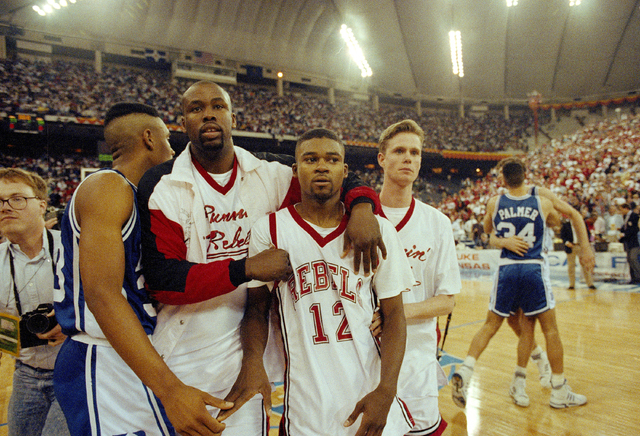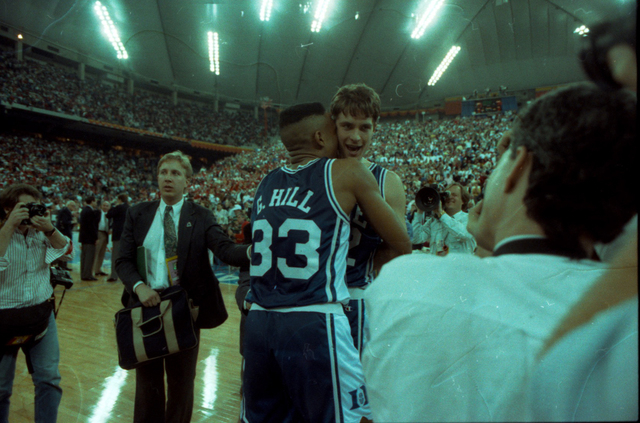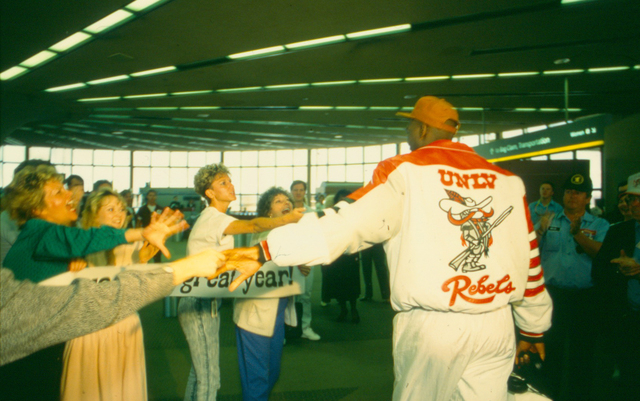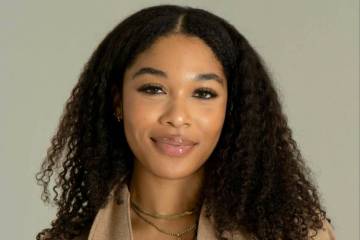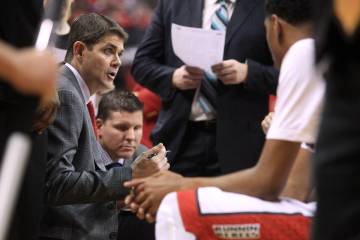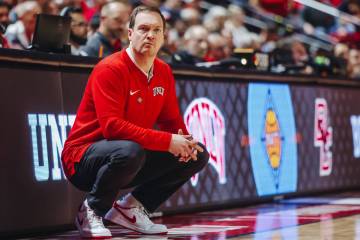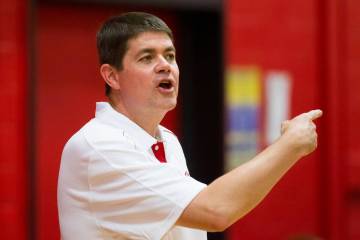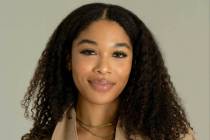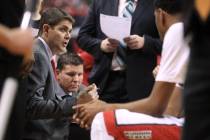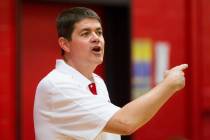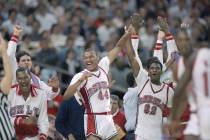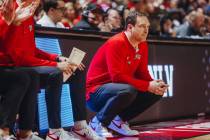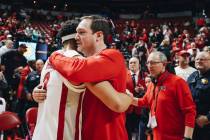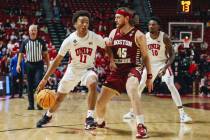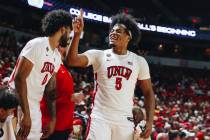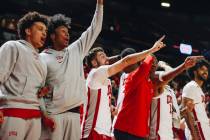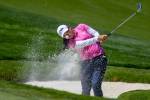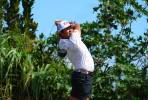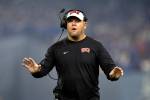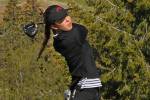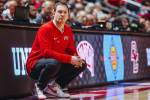25 years later, UNLV’s Final Four loss to Duke still stings
The pain of March 30, 1991, will never completely go away.
UNLV’s 79-77 loss to Duke at the Final Four at the Hoosier Dome in Indianapolis remains one of the great upsets not only in the history of college basketball, but in all sports.
That loss, 25 years ago today, erased a season that saw the Rebels as the consensus No. 1 team in both the Associated Press and United Press International polls, a team that to that point was 34-0 and beat its opponents by an average of 26 points a game. It was a team that rolled through conference play 18-0 and won by an average of almost 30 points a game.
“Sometimes, we players lose sight of the fact we had a great season,” said Greg Anthony, the starting point guard for the 1991 team. “I think a lot of what we accomplished got lost in the fact we didn’t repeat and go undefeated.”
Then-coach Jerry Tarkanian, who died a year ago at age 84, said it was the worst day of his life. He had been gracious in defeat afterward and always gave Duke and its coach Mike Krzyzewski credit for their effort. But the loss stayed with him forever.
His players feel the same.
“We went into that game, just like all the other games, expecting to win,” said Stacey Augmon, the team’s All-American forward. “It hadn’t happened all year. So when it did happen, it was devastating.”
Anthony said, “Anytime you lose a game by one possession, it’s going to hurt.”
Dave Rice, a reserve guard on that team who later became UNLV’s coach, said: “The thing that’s tough about losing that game was we were chasing more than a second national championship. We were on a course to be the first undefeated team since Indiana in 1976, and that was important to the guys.”
Road to repeat
The Rebels were well on their way to accomplishing the feat when they arrived in Indianapolis. As fate would have it, UNLV would play in the national semifinals against Duke, the team they had blown out by 30 points the year before in Denver to give the program its first national championship and vindicate Tarkanian.
Tark’s legal battles with the NCAA had become legendary and for the NCAA to have to hand him the trophy on the floor at McNichols Sports Arena was as sweet as it got for him.
The only thing sweeter would have been repeating. That was why the school cut a deal with the NCAA to delay sanctions and penalties against the program that had been found during the school’s recruitment of Lloyd Daniels from 1986-87. The NCAA would let Tarkanian’s team defend its title, but the following year would mean no postseason.
The ruling didn’t come down until the eve of the team’s season opener against Alabama-Birmingham in Vancouver on Dec. 1. But with the news, Tarkanian’s team seemed re-energized. They rolled through the competition, scoring in triple figures in 11 of their first 20 games.
The only team to really challenge them was Arkansas, the No. 2 team in the nation at the time, when they met Feb. 10 in Fayetteville, Arkansas. The Rebels, who trailed 50-46 at halftime, rallied to win 112-105 and remain undefeated.
UNLV put its foot on the gas pedal in March. The Rebels routed Montana in the opening round of the NCAA Tournament, defeated Georgetown, handled Utah with ease in the Sweet 16 and downed Seton Hall, 77-65, to secure their spot in the Final Four.
But Duke had its own agenda. From Krzyzewski’s perspective, there was room in college basketball for more than one juggernaut, and the Blue Devils were about to embark upon their own journey of success, one that would define the legacy of the small private school in Durham, North Carolina.
“We also knew Duke was very good, and Coach Tark was very concerned going into the game,” Rice said.
An unforgettable game
The Blue Devils were in it from the opening tip. At halftime, UNLV’s lead was just 43-41. Midway through the second half, Duke held a 65-63 lead, and it was evident that the Blue Devils weren’t going away.
Still, UNLV was displaying the toughness that made it feared. The Rebels led 74-71 and appeared to be in a position to take control late.
Then disaster struck.
Anthony was called for a charge and fouled out with 3:51 remaining and the Rebels holding that three-point lead. Anthony was on the bench, but Tarkanian still had enough weapons on the floor to hold off Duke. Larry Johnson. Augmon and Anderson Hunt (1990 Final Four MVP) loomed on the court.
But not having Anthony in crunch time ultimately proved fatal. UNLV was still in front with 2½ minutes to play as George Ackles’ short jumper had the Rebels up 76-71. Get a couple of stops, make the free throws that figured to come after Duke would be forced to foul and it would be on to Monday and a date with Kansas for the national championship.
“The fact I fouled out will always be with me,” Anthony said. “People focus on the charge call. But three of the other calls still stay with me, and if one of those calls went the other way, maybe it’s a different outcome.”
But Bobby Hurley hit a 3-pointer. Brian Davis drove and made a layup to tie it. Then Davis made a free throw with 1:02 left to put Duke ahead 77-76.
Johnson matched the free throw, but Christian Laettner was fouled after grabbing a rebound with 12 seconds left. He made both foul shots for what would be the final margin of victory in a game that was tied 17 times with 25 lead changes.
Evric Gray, a freshman, was called for the foul.
“That still bothers me,” he said. “I didn’t foul him.”
UNLV’s last possession saw Johnson bring the ball into the frontcourt, ignore an open look from the 3-point arc and pass to Hunt, who missed from 24 feet with one second left.
“We wanted to get the ball to Anderson on the last play,” Johnson said after the game. “That’s why I brought the ball up. But Duke played good defense.”
Hurley, who is now the coach at Arizona State, said it wasn’t about revenge from the year before that still resonates with him about the rematch 25 years later.
“I remember how proud I was to compete and be involved in that Final Four and that matchup,” Hurley said. “To beat a team that was that good on that stage is one of the great accomplishments of my career.
“Coach K did a tremendous job instilling confidence in us in the week leading up. And man, was Grant Hill good as a freshman. … Our team was just beginning to find out how good we could be.”
The aftermath
Losing the game was just the beginning of UNLV’s problems. Almost as soon as the final buzzer sounded, there were rumors throughout the Hoosier Dome that there might have been some improprieties involved, even point shaving.
Augmon’s name came up. He had an uncharacteristically bad game, finishing with just six points on 3-of-10 shooting with four turnovers. But nothing was ever proved, and he maintains to this day he did nothing wrong.
“I had a tough day,” Augmon said. “The matchup I had was a hard one. They had a younger, quicker guy in Grant Hill guarding me and he didn’t allow me to get comfortable. Nobody had done that to me all season.
“I’m saying to myself, ‘Who is this guy?’ He was someone who had the same ability as me, and I wasn’t used to that.”
In late May 1991, the Review-Journal published photos of Tarkanian’s players in a hot tub with convicted sports fixer Richard Perry.
Shortly after, Tarkanian would resign effective at the end of the 1991-92 season. His final team went 26-2 but was not eligible for postseason play.
UNLV has never made it back to the Final Four. Since 1991, the Rebels have made just eight trips to the NCAA Tournament. The closest UNLV got was the Sweet 16 in 2007.
Augmon said when he looks back on the loss to Duke, there was a play late in the game where he failed to dive for a loose ball. Had he come up with it, UNLV would’ve maintained possession and maybe the outcome would have been different.
“That still bothers me,” he said. “I could’ve made the play, but I didn’t come up with it. In a game like that, every possession mattered.”
Augmon said he doesn’t let one segment of one game define his senior season.
“We had a great season,” he said. “We brought the community together. There was no time that brought UNLV or Vegas itself, together like that team did.
“We were still ahead in the last four minutes. All of our guys gave it 100 percent. But you have to give Duke credit. They made winning plays at the end, and we didn’t make the plays we needed to at the end. Period.”
Anthony was able to put that day in its proper perspective.
“You can play the woulda, shoulda, coulda game,” he said. “But one thing about sports is it’s black and white. You never know what’s going to happen.”
Contact reporter Steve Carp at scarp@reviewjournal.com or 702-387-2913. Follow him on Twitter: @stevecarprj
THE ALMOST PERFECT SEASON
1990-91 UNLV men's basketball results
Regular season
Dec. 1: UNLV 109, Alabama-Birmingham 68.
Dec. 8: UNLV 131, Nevada-Reno 81
Dec. 15: UNLV 95, Michigan State 75
Dec. 19: UNLV 69, Princeton 35
Dec. 22: UNLV 101, Florida State 69
Dec. 29: UNLV 92, Pacific 72
Jan. 2: UNLV 89, James Madison 65
Jan 4: UNLV 98, Cal State-Fullerton 67
Jan. 7: UNLV 95, San Jose State 63
Jan 9: UNLV 124, Utah State 93
Jan 12: UNLV 117, Fresno State 91
Jan. 17: UNLV 117, UC Irvine 76
Jan. 19: UNLV 114, Long Beach State 63
Jan. 21: UNLV 88, UC Santa Barbara 71
Jan. 26: UNLV 97, Louisville 85
Jan. 28: UNLV 126, Utah State 83
Jan. 31: UNLV 88, San Jose State 64
Feb. 2: UNLV 115, Rutgers 73
Feb. 7: UNLV 113, Fresno State 64
Feb. 10: UNLV 112, Arkansas 105
Feb. 14: UNLV 98, UC Santa Barbara 71
Feb. 16: UNLV 86, New Mexico State 74
Feb. 18: UNLV 122, Long Beach State 75
Feb. 21: UNLV 80, Pacific 59
Feb. 23: UNLV 114, UC Irvine 86
Feb. 25: UNLV 86, New Mexico State 74
March 2: UNLV 104, Cal State Fullerton 83
Big West Tournament
March 8: UNLV 49, Long Beach State 29
March 9: UNLV 95, UC Santa Barbara 67
March 10: UNLV 98, Fresno State 74
NCAA Tournament
March 15: UNLV 99, Montana 65
March 17: UNLV 62, Georgetown 54
March 21: UNLV 83, Utah 66
March 23: UNLV 77, Seton Hall 65
March 30: Duke 79, UNLV 77



